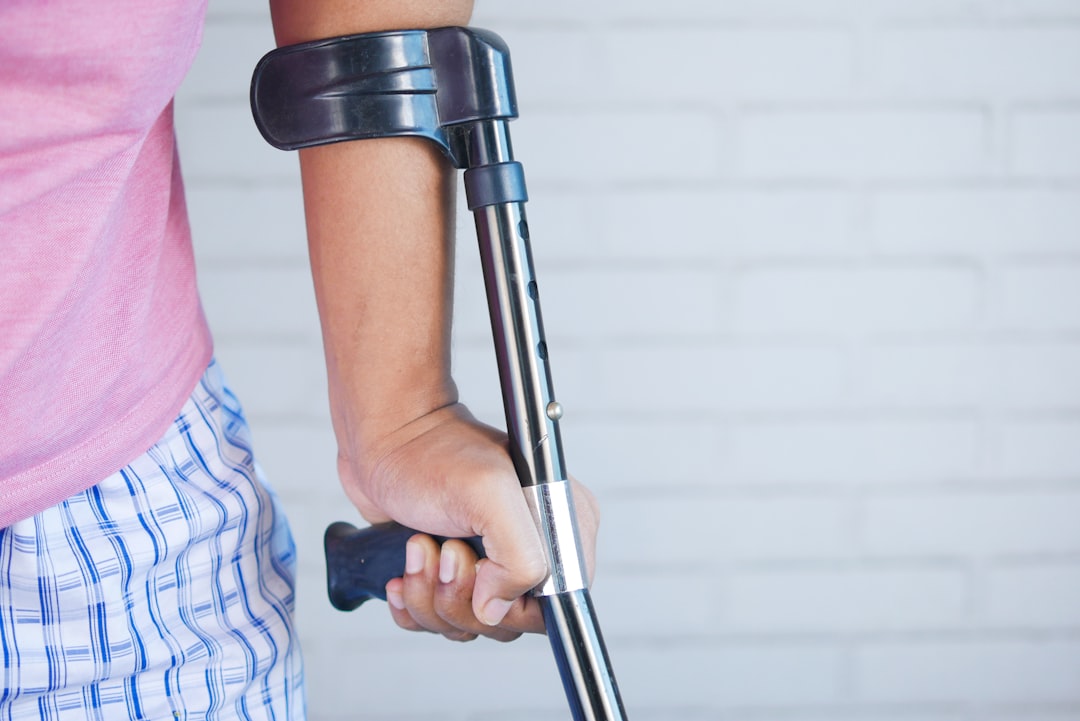

Personal injury claims are legal disputes that arise when an individual suffers harm from an accident or injury, and someone else might be legally responsible for that harm. The purpose of these claims is to seek compensation for the injured party's losses, which can include medical expenses, lost wages, pain and suffering, and other damages. These claims form a crucial part of tort law and serve to protect individuals by providing a mechanism for recovering their losses.
At its core, a personal injury claim centers on the concept of negligence. In most cases, the person who caused the injury did not intend to cause harm but failed to act with the level of care that a reasonably prudent person would have used under similar circumstances. This breach of duty is what makes them liable for any resulting injuries.
There are several types of personal injury claims, each with its unique aspects and requirements:
Motor Vehicle Accidents: One of the most common types of personal injury claims involves accidents involving cars, trucks, motorcycles, bicycles, or pedestrians. These incidents often result in serious physical injuries due to collisions caused by distracted driving, speeding, drunk driving, or failure to follow traffic laws.
Slip and Fall Accidents: Property owners have a responsibility to ensure their premises are safe for visitors. When they fail in this duty-whether by not fixing a broken staircase or leaving wet floors unattended-slip and fall accidents can occur. Victims may suffer from fractures, sprains, or more severe injuries like head trauma.
Medical Malpractice: Healthcare professionals must provide care that meets specific standards. When doctors or nurses fail in this duty through misdiagnosis, surgical errors, improper treatment, or medication mistakes, patients can suffer severe consequences. Medical malpractice claims address these failures in the healthcare system.
Workplace Injuries: Employees injured on the job may be entitled to workers' compensation benefits; however, there are scenarios where they might pursue personal injury claims as well-especially if a third party's negligence contributed to their injuries.
Product Liability: Defective products can cause significant harm if they malfunction during normal use. Manufacturers and sellers can be held accountable if their products have design flaws, manufacturing defects or inadequate warnings that lead to consumer injuries.
Assault and Battery: Unlike other personal injury claims based on negligence, assault and battery involve intentional acts designed to cause harm. Victims can file civil lawsuits seeking damages separate from any criminal charges against the perpetrator.
Dog Bites: Dog owners are typically liable for bites and attacks committed by their pets if certain conditions are met-such as proving that the owner knew about their animal's aggressive tendencies but failed to take appropriate precautions.
Understanding these different types helps illustrate how broad the scope of personal injury law truly is; it encompasses various situations where people need protection from others' negligent behaviors or intentional actions causing harm.
In conclusion, personal injury claims play an essential role in society by holding individuals accountable for causing harm through negligence or malicious intent while providing victims with financial relief needed during recovery periods after traumatic events disrupt lives unexpectedly . Whether dealing with car crashes , unsafe premises , medical errors workplace hazards defective items violent attacks dog bites each category represents distinct challenges opportunities ensuring justice fairness within our legal framework .
Personal injury claims are a significant aspect of the legal system, providing a means for individuals to seek compensation when they have been harmed due to someone else's negligence or intentional actions. Understanding the common causes of personal injuries is crucial, as it not only helps potential claimants identify valid cases but also raises awareness about how to avoid such injuries in the first place.
One of the most prevalent causes of personal injuries is automobile accidents. Every year, millions of people are involved in car crashes that result in serious injuries or fatalities. Factors contributing to these accidents include distracted driving, speeding, drunk driving, and reckless behavior behind the wheel. Despite numerous campaigns promoting road safety, car accidents remain a leading cause of personal injury claims due to their frequent occurrence and severe consequences.
Another significant source of personal injury claims comes from slip and fall accidents. These incidents often occur in public places like supermarkets, shopping malls, and office buildings where property owners have a duty to maintain safe premises. Hazards such as wet floors, uneven surfaces, poor lighting, and lack of proper signage can lead to slips and falls that cause serious injuries like broken bones, sprains, and head trauma. Property owners can be held liable if they fail to address these hazards promptly.
Medical malpractice is another critical area leading to personal injury claims. Healthcare professionals are expected to provide a standard level of care; however, mistakes such as misdiagnosis, surgical errors, medication errors, and negligence during treatment can result in devastating outcomes for patients. When healthcare providers fail in their duty of care and cause harm through their actions or omissions, victims or their families may pursue legal action for compensation.
Workplace accidents also contribute significantly to personal injury claims. Employees may suffer from injuries due to unsafe working conditions, inadequate training, faulty equipment, or employer negligence. Common workplace injuries include repetitive strain injuries (RSIs), fractures from falls or equipment malfunctions, and exposure to hazardous substances. Workers' compensation laws typically cover these incidents; however, there are cases where employees might need to file a separate personal injury claim against third parties responsible for their injuries.
Additionally, product liability cases arise when consumers are injured by defective products. Manufacturers have a responsibility to ensure that their products are safe for use; however, design flaws, manufacturing defects, or inadequate warnings can lead to harm. Injuries from defective products range from minor cuts and bruises to severe burns or even death. Victims can hold manufacturers accountable through product liability claims.
In conclusion, understanding common causes of personal injuries is essential for both prevention and seeking justice when harm occurs. Automobile accidents remain one of the top reasons individuals file personal injury claims due to their frequency and impact on victims' lives. Slip and fall incidents highlight the importance of maintaining safe environments in public spaces while medical malpractice underscores the critical nature of competent healthcare provision. Workplace accidents remind employers about their responsibility towards employee safety whereas product liability emphasizes manufacturers' duty towards consumer protection. Recognizing these causes empowers individuals with knowledge on preventing potential hazards while ensuring access to rightful compensation when needed.
Choosing the right lawyer can feel like a daunting task, especially when you're already dealing with the stress and potential injuries from a slip and fall accident.. It's crucial to find someone who not only has the expertise but also fits your budget.

Posted by on 2024-09-19
Understanding compensation for slip and fall injuries often necessitates a deep dive into potential outcomes and settlements.. These incidents, seemingly minor at first glance, can lead to significant physical, emotional, and financial repercussions.

Posted by on 2024-09-19
When it comes to slip and fall claims, choosing the right legal representation is paramount to ensuring that your case is handled effectively and efficiently.. The road to compensation for injuries sustained in such incidents can be fraught with complexities, making it crucial to avoid common pitfalls that could otherwise jeopardize your claim. First and foremost, it's essential to select a lawyer who specializes in personal injury law, particularly in slip and fall cases.

Posted by on 2024-09-19
When faced with a slip and fall incident, securing a fair settlement can be daunting.. Understanding how to navigate the legal complexities is crucial, and this is where an expert lawyer becomes invaluable.

Posted by on 2024-09-19
Preparing for Potential Legal Proceedings Navigating the labyrinthine corridors of legal proceedings following a slip and fall accident can feel daunting, especially when you're already dealing with physical pain and emotional stress.. Preparing for potential legal battles requires a blend of meticulous documentation, strategic planning, and professional guidance.

Posted by on 2024-09-19
Filing a personal injury claim can be a daunting process, but understanding the legal steps involved can help streamline the journey and ensure that you are adequately prepared. When someone suffers harm due to another party's negligence, they have the right to seek compensation for their injuries. Here is an overview of the typical legal process for filing a personal injury claim.
The first step in pursuing a personal injury claim is seeking medical attention immediately after the incident. Documentation of your injuries by healthcare professionals not only ensures your well-being but also serves as critical evidence in your case. Medical records will be instrumental in proving both the extent and cause of your injuries.
Once you have received appropriate medical care, it is crucial to gather all relevant information related to the incident. This includes collecting contact details of witnesses, taking photographs of the scene, and securing any available surveillance footage. The more evidence you can compile, the stronger your case will be.
Next, it is advisable to consult with a personal injury attorney who specializes in such claims. An experienced lawyer can provide valuable guidance on how to proceed and what to expect throughout the legal process. They will evaluate your case during an initial consultation and offer advice on its viability based on their expertise.
If you decide to move forward with filing a claim, your attorney will typically begin by sending a demand letter to the responsible party's insurance company. This letter outlines your injuries, describes how they occurred, and specifies the amount of compensation you are seeking for medical expenses, lost wages, pain and suffering, and other damages.
Following this step, negotiations with the insurance company often commence. Insurers may attempt to settle claims quickly and for less than their true value; hence having legal representation can significantly increase your chances of obtaining fair compensation. Your lawyer will negotiate on your behalf to reach an equitable settlement.
If negotiations fail or if a reasonable settlement cannot be reached within an acceptable timeframe, filing a lawsuit might become necessary. This involves drafting and submitting a formal complaint to the court that details why you believe you are entitled to compensation from the defendant (the party allegedly responsible for causing harm).
After filing the lawsuit, both parties engage in what is known as discovery - exchanging information pertinent to the case through depositions (sworn statements), interrogatories (written questions requiring written answers), requests for documents etc., which allows each side better insight into strengths & weaknesses before proceeding further along litigation path towards trial phase potentially culminating ultimately reaching resolution either via judicial judgement or pre-trial settlement agreements facilitated sometimes even mediated alternative dispute resolution methods like arbitration where applicable depending jurisdictional specifics governing particularities involved therein applicable contexts accordingly circumstantially determinative thereof overall procedural conduciveness factually contextually driven considerations guiding course anticipated actions suitably fitting requisite needs thusly arising contingently responsive mannerism observed consistently duly ensuring justice equitably served full measure attained satisfactorily deserved rightful entitlements accorded fairly justly without prejudice bias undue favor unmerited giving due regard fairness equity law principles upheld steadfast unwavering commitment truth trust inherently foundational pillars standing strong resilient enduring testament integrity forthrightly committed pursuit noble cause righteousness fundamentally ingrained essence pure advocacy dedicated tirelessly championing client interests paramount priority forefront always strived achieved apex excellence professional conduct ethical standards highest order maintained scrupulously adhered invariably perpetuity assurance reliability dependability hallmark distinguished reputable legacy built time honored tradition exceptional service unparalleled industry leading benchmark epitomizing quintessential embodiment exemplary practice pinnacle perfection aspirational ideal continually sought realized perpetuated generationally transcendent timeless universally respected admired revered esteemed globally recognized lauded commendable praiseworthy

Gathering Evidence and Documentation for Personal Injury Claims
When it comes to personal injury claims, the importance of gathering evidence and documentation cannot be overstated. This process is the backbone of any successful claim, as it substantiates your case and ensures that you receive the compensation you rightly deserve. From the moment an injury occurs, every detail matters; a well-documented claim can make the difference between a favorable settlement and a prolonged legal battle.
The first step in gathering evidence begins at the scene of the incident. Whether it's a car accident, slip and fall, or workplace injury, immediate action is crucial. Take photographs of everything-damaged property, injuries sustained, road conditions, weather conditions, and any other relevant details. Visual evidence provides an irrefutable account of what transpired and can significantly bolster your claim.
Witness statements are another critical element. If there were bystanders or anyone else present during the incident, their testimonies could provide impartial accounts that support your version of events. Collect contact information from these witnesses as soon as possible; memories fade over time, and securing statements early on can preserve essential details.
Medical documentation is perhaps one of the most vital components of your evidence portfolio. Seek medical attention immediately after an injury occurs, even if you believe your injuries are minor. Medical records not only confirm that an injury took place but also detail its severity and long-term impact on your life. Keep all medical bills, prescriptions, treatment plans, and any correspondence with healthcare providers.
Police reports also play a significant role in personal injury claims involving accidents or criminal activity. These reports provide an official account of what happened and often include valuable information such as witness names and statements, diagrams of the incident scene, and officer observations. Always request a copy for your records.
Correspondence related to your injury should be meticulously documented as well. This includes communication with insurance companies, employers (if applicable), legal advisors, and any other parties involved in your claim process. Keeping detailed notes or copies of emails can help ensure that no crucial information slips through the cracks.
Additionally, maintain a personal journal detailing how your injuries affect daily activities and quality of life. Record symptoms experienced each day, missed work hours or lost wages due to inability to perform job duties fully because this personal narrative adds depth to clinical data by illustrating emotional pain alongside physical suffering endured post-incident.
Lastly-and importantly-consider seeking professional legal guidance early on in this process because skilled attorneys specializing in personal injury law offer invaluable assistance navigating complex legal systems while ensuring comprehensive collection pertinent evidential material thereby maximizing chances favorable outcomes when pursuing deserved compensations resulting from unfortunate incidents beyond control yet impacting lives considerably nonetheless ultimately requiring remedy restoration justice levels possible under given circumstances faced therein accordingly without delay ideally too!
In conclusion: thoroughness diligence key successful pursuit rightful compensations arising from unfortunate incidents causing personal injuries thus emphasizing importance systematic approach gathering documenting all relevant evidences involved ensuring strong compelling cases presented favorably adjudicated achieving desired resolutions eventually indeed so!
Insurance companies play a pivotal role in personal injury claims, acting as both a shield and a gatekeeper for the financial implications that arise from accidents and injuries. Their involvement can be seen as a double-edged sword-on one side, they provide crucial financial support for victims seeking compensation; on the other, they serve their own interests by minimizing payouts. Understanding this dual role is essential for anyone navigating the complexities of personal injury claims.
When an individual suffers an injury due to someone else's negligence-be it from a car accident, slip and fall, or medical malpractice-the immediate concern often revolves around medical bills, lost wages, and long-term rehabilitation costs. This is where insurance companies step in. They are designed to offer financial relief by covering these expenses under various policies such as auto insurance, homeowner's insurance, or health insurance. Victims can file claims against these policies to receive compensation that helps them manage their immediate financial burdens.
However, it's not always straightforward. Insurance companies also have a vested interest in protecting their bottom line. As a result, they employ adjusters and legal teams whose primary goal is to minimize the amount paid out in claims. These professionals scrutinize every aspect of the claim-from the legitimacy of the injury to the extent of liability-and often employ tactics like disputing medical evidence or downplaying the severity of injuries to reduce payouts.
This adversarial stance means that individuals pursuing personal injury claims must be prepared for potential pushback. A claimant might find themselves negotiating with seasoned professionals who are skilled at leveraging legal intricacies and procedural nuances to their advantage. In many cases, this necessitates hiring a specialized personal injury attorney who can navigate these waters effectively and advocate on behalf of the injured party.
Moreover, insurance companies often dictate the pace at which claims are processed. Delays are not uncommon; insurers may stall proceedings under various pretexts such as needing more documentation or additional time for investigation. These delays can be financially draining for victims already dealing with medical bills and loss of income.
Despite these challenges, it's important to acknowledge that without insurance companies, many individuals would find themselves unable to secure necessary funds following an injury. Policies like uninsured motorist coverage or workers' compensation provide vital safety nets that catch those who might otherwise fall through societal cracks.
In conclusion, insurance companies hold substantial influence over personal injury claims-an influence that comes with both benefits and hurdles for claimants. While they offer indispensable financial support during critical times of need, they also operate within frameworks designed to protect their own financial interests vigorously. For claimants navigating this complex landscape, understanding this dual role is key to maximizing their chances of receiving fair compensation while being prepared for potential obstacles along the way.
Calculating Compensation and Damages in Personal Injury Claims: A Comprehensive Overview
When individuals suffer injuries due to accidents or negligence, they often face not only physical pain but also emotional distress and financial burdens. In such cases, seeking compensation through personal injury claims becomes essential. However, the process of calculating compensation and damages is intricate, requiring a nuanced understanding of various factors and legal principles.
The cornerstone of any personal injury claim is the principle of making the injured party "whole" again-essentially restoring them to the position they were in before the injury occurred. This involves different categories of damages: economic, non-economic, and sometimes punitive.
Economic damages are relatively straightforward as they encompass quantifiable financial losses. These include medical expenses, both past and future; lost wages due to inability to work; and other out-of-pocket costs directly related to the injury. To substantiate these claims, detailed documentation such as medical bills, pay stubs, and receipts is crucial. Calculating future expenses can be more complex, often necessitating expert testimony from medical professionals or economists who can project long-term care needs or career impacts.
Non-economic damages cover more abstract losses that do not come with a direct price tag. Pain and suffering, emotional distress, loss of companionship (in wrongful death cases), and diminished quality of life fall under this category. Quantifying these damages is inherently subjective but generally involves evaluating the severity and duration of the injury's impact on daily living. Courts may use multipliers based on economic damages or per diem rates-a daily monetary value assigned for each day the victim suffers-to arrive at a reasonable figure.
In certain instances where the defendant's conduct was particularly egregious or malicious, punitive damages may also be awarded. Unlike compensatory damages aimed at making the plaintiff whole, punitive damages serve to punish the wrongdoer and deter similar behavior in the future. These are rare in personal injury claims but can significantly increase overall compensation when applicable.
One must also consider contributory negligence laws that vary by jurisdiction. In some areas, if an injured party is found partially responsible for their injuries, their compensation might be reduced proportionately or even entirely barred if their fault exceeds a certain threshold.
Insurance companies play a critical role in this process as well. They often employ adjusters who use proprietary algorithms to assess claims quickly but not necessarily fairly from the claimant's perspective. Legal representation becomes invaluable at this stage to negotiate effectively with insurers or present a compelling case should it proceed to trial.
Lastly, statutory caps on certain types of non-economic damages exist in some jurisdictions which limit how much can be awarded regardless of circumstances. These caps are contentious as they can seem arbitrary yet significantly influence settlement negotiations.
In conclusion, calculating compensation and damages in personal injury claims requires meticulous attention to detail and an adept understanding of both tangible costs and intangible impacts on one's life. While no amount of money can truly compensate for severe injuries or loss suffered due to another's negligence or malfeasance, equitable financial restitution provides vital support for recovery and underscores accountability within our legal system.
Navigating the aftermath of a personal injury can be an overwhelming and stressful experience. Whether it's a car accident, slip and fall, or medical malpractice, dealing with the repercussions often involves not only physical pain but also emotional and financial strain. In such scenarios, hiring a personal injury lawyer can be crucial in ensuring that you receive the compensation you deserve. The importance of engaging a skilled attorney cannot be overstated for several reasons.
Firstly, personal injury lawyers possess specialized knowledge and expertise in the field of personal injury law. These legal professionals are well-versed in the intricacies of tort law, insurance policies, and court procedures, which can be daunting for someone without legal training to navigate. They understand how to build a strong case by gathering essential evidence, interviewing witnesses, and consulting with experts when necessary. This comprehensive approach increases your chances of achieving a favorable outcome.
Moreover, personal injury lawyers have extensive experience negotiating with insurance companies. Insurance adjusters are trained to minimize the payout to claimants in order to protect their company's bottom line. Without legal representation, you may find yourself at a significant disadvantage during these negotiations. A seasoned lawyer knows the tactics used by insurance companies and can advocate effectively on your behalf to ensure that your rights are protected and that you receive fair compensation for your injuries.
Another critical aspect is that personal injury attorneys work on a contingency fee basis. This means that they do not charge any upfront fees and only get paid if they win your case. This arrangement provides injured individuals access to quality legal representation regardless of their financial situation while also motivating lawyers to secure the best possible outcome for their clients.
Additionally, hiring a personal injury lawyer allows you to focus on your recovery rather than being bogged down by legal complexities. Dealing with paperwork, deadlines, and legal jargon can be overwhelming when you're trying to heal from an injury. By entrusting these responsibilities to a professional, you can concentrate on regaining your health while knowing that your case is in capable hands.
Finally, having legal representation sends a strong message to the opposing party that you are serious about pursuing your claim. This could result in quicker settlements or more reasonable offers from defendants who might otherwise drag out the process or attempt lowball settlements.
In conclusion, hiring a personal injury lawyer is of paramount importance when dealing with personal injury claims. Their expertise ensures that all aspects of your case are thoroughly addressed; their negotiation skills help secure fair compensation; their contingency fee structure makes legal services accessible; their involvement allows you to focus on healing; and their presence signals seriousness in pursuing justice. If you've suffered an injury due to someone else's negligence or misconduct, seeking out professional legal assistance could make all the difference in achieving just resolution and obtaining peace of mind during challenging times.
Experiencing an accident can be a jarring and distressing event, often leaving individuals feeling overwhelmed and uncertain about what steps to take next. Whether it's a car collision, slip and fall, or any other type of personal injury incident, knowing the appropriate actions to take immediately after can significantly affect the outcome of any subsequent claims. Here are some crucial steps to follow after an accident to protect your well-being as well as your legal rights.
First and foremost, ensure safety. If you're involved in a car accident, move to a safe location if possible without causing further harm or danger. Turn on hazard lights to alert other drivers. For accidents that occur indoors or at work, make sure you move away from any ongoing hazards. Safety should always be your primary concern.
Next, seek medical attention immediately even if you believe your injuries are minor. Some injuries may not be immediately apparent but could become serious over time if untreated. A medical professional will document the extent of your injuries which is essential for any personal injury claim. This documentation serves as concrete evidence linking the accident to any physical harm you've suffered.
Once safety and health concerns are addressed, it's vital to gather evidence from the scene of the accident. Take photographs of everything relevant: vehicle damage, skid marks on the road, hazardous conditions that contributed to a fall, or anything else that might support your claim later on. Collect contact information from witnesses who saw what happened; their statements could be invaluable in corroborating your account of events.
Make sure you also report the incident appropriately. For car accidents, this means calling law enforcement so they can file an official police report detailing what occurred. In workplace accidents, inform your supervisor and fill out any required incident reports promptly.
Documentation doesn't stop at the scene-keep thorough records moving forward as well. Maintain copies of all medical bills, treatment records, repair invoices for property damage, and correspondence with insurance companies or employers regarding the incident.
It's generally advisable not to discuss fault at the scene of an accident or with insurance adjusters until you've consulted with a legal professional specializing in personal injury claims. Anything you say could potentially be used against you later on.
Speaking with an experienced personal injury attorney can provide significant advantages when navigating through complex legal waters following an accident. An attorney can guide you through filing claims correctly within required deadlines and negotiate settlements that fairly compensate for all losses incurred-be it medical expenses, lost wages due to inability to work or emotional distress suffered due to trauma from the accident.
In conclusion ensuring immediate safety seeking timely medical attention gathering comprehensive evidence reporting adequately keeping meticulous records avoiding premature discussions about fault consulting professionals-all these steps form a systematic approach aimed at safeguarding ones interests following unexpected mishaps involving personal injuries Remember each action taken post-accident lays down crucial groundwork influencing effectiveness eventual resolution related claims